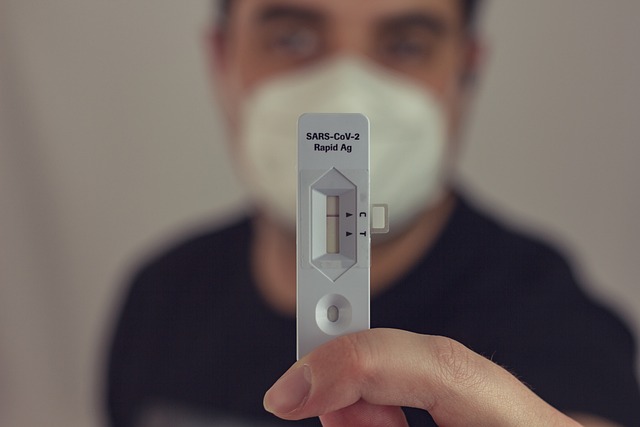Iron deficiency anemia, characterized by low iron levels, affects red blood cells, leading to symptoms like fatigue and weakness. A Kidney Blood Test UK is a key diagnostic tool, measuring hemoglobin, iron levels, and red blood cell counts. These tests help identify anemia caused by kidney issues or other factors, enabling healthcare professionals to prescribe tailored treatments including dietary changes, supplements, or injectable iron, with regular follow-up tests for monitoring.
“Iron deficiency anemia, a common yet often overlooked health issue, can be effectively diagnosed using kidney blood tests, particularly relevant in the UK. This comprehensive guide delves into the world of iron-related anemia, highlighting its symptoms and the crucial role of kidney blood tests in confirmation. Understanding these tests and their results is essential for both medical professionals and individuals concerned about their health. By exploring treatment options, we aim to provide a clear path towards managing this condition.”
- Understanding Iron Deficiency Anemia and its Symptoms
- The Role of Kidney Blood Tests in Diagnosis
- Interpreting Results and Treatment Options
Understanding Iron Deficiency Anemia and its Symptoms
Iron deficiency anemia is a common blood disorder that occurs when your body doesn’t have enough iron, an essential mineral required to produce healthy red blood cells. These cells are responsible for carrying oxygen from your lungs throughout your body, giving you energy and supporting overall health. When you’re deficient in iron, your red blood cells become smaller and weaker, leading to reduced oxygen delivery, which can result in a range of symptoms.
Common signs of iron deficiency anemia include fatigue, weakness, pale skin, shortness of breath, dizziness, headaches, and tingling or numbness in the hands and feet. Some people may also experience decreased appetite, weight loss, and a craving for non-food items, such as ice or clay. If left untreated, it can cause more severe complications, so recognizing the symptoms is crucial. A simple Kidney Blood Test UK can help diagnose anemia by measuring iron levels, hemoglobin concentration, and red blood cell counts, ensuring prompt treatment and management of this condition.
The Role of Kidney Blood Tests in Diagnosis
In the diagnosis of Iron deficiency anemia, Kidney Blood Tests play a crucial role in the UK. These tests, often part of a comprehensive evaluation, help medical professionals assess various aspects of a patient’s health status. By examining the blood, specifically looking at red blood cells and their ability to carry oxygen (hemoglobin levels), healthcare providers can identify anomalies indicative of anemia. Moreover, Kidney Blood Tests provide valuable insights into potential underlying causes, including kidney-related issues that might contribute to iron deficiency.
In the UK, where access to advanced medical facilities is prevalent, these tests are readily available and offer a non-invasive way to gather critical information. They complement other diagnostic tools like ferritin levels and transferrin saturation, helping to confirm or rule out iron deficiency anemia. Accurate diagnosis through Kidney Blood Tests enables healthcare providers to tailor treatment plans effectively, ensuring patients receive the appropriate care for their specific condition.
Interpreting Results and Treatment Options
Interpreting Results and Treatment Options
Once your kidney blood test UK results are back, it’s crucial to understand what they mean. If iron deficiency anemia is suspected, your doctor will look at several factors including your hemoglobin (Hb) level—a key indicator of red blood cell health and oxygen transport. Normal Hb levels typically range from 13.5 to 17.5 g/dL for men and 12 to 15 g/dL for women. Levels below these ranges could signal iron deficiency. Other tests, such as ferritin levels (measuring iron stores) and transferrin saturation (assessing how effectively iron is being used), might also be conducted for a comprehensive understanding.
Treatment options are readily available to manage iron deficiency anemia. The primary goal is to restore iron levels through dietary changes or supplementation. Dietary sources rich in iron include lean red meat, poultry, fish, beans, lentils, and fortified cereals. In some cases, oral iron supplements can be prescribed by your doctor. For severe cases where absorption issues are suspected, injectable iron may be recommended. Regular follow-up blood tests UK will monitor progress and ensure successful management of the condition.
Iron deficiency anemia is a common yet treatable condition, and kidney blood tests play a crucial role in its diagnosis, especially in the UK. By understanding the symptoms and interpreting blood results accurately, individuals can access appropriate treatment options. These tests, along with professional guidance, enable effective management of iron levels, leading to improved overall health.
